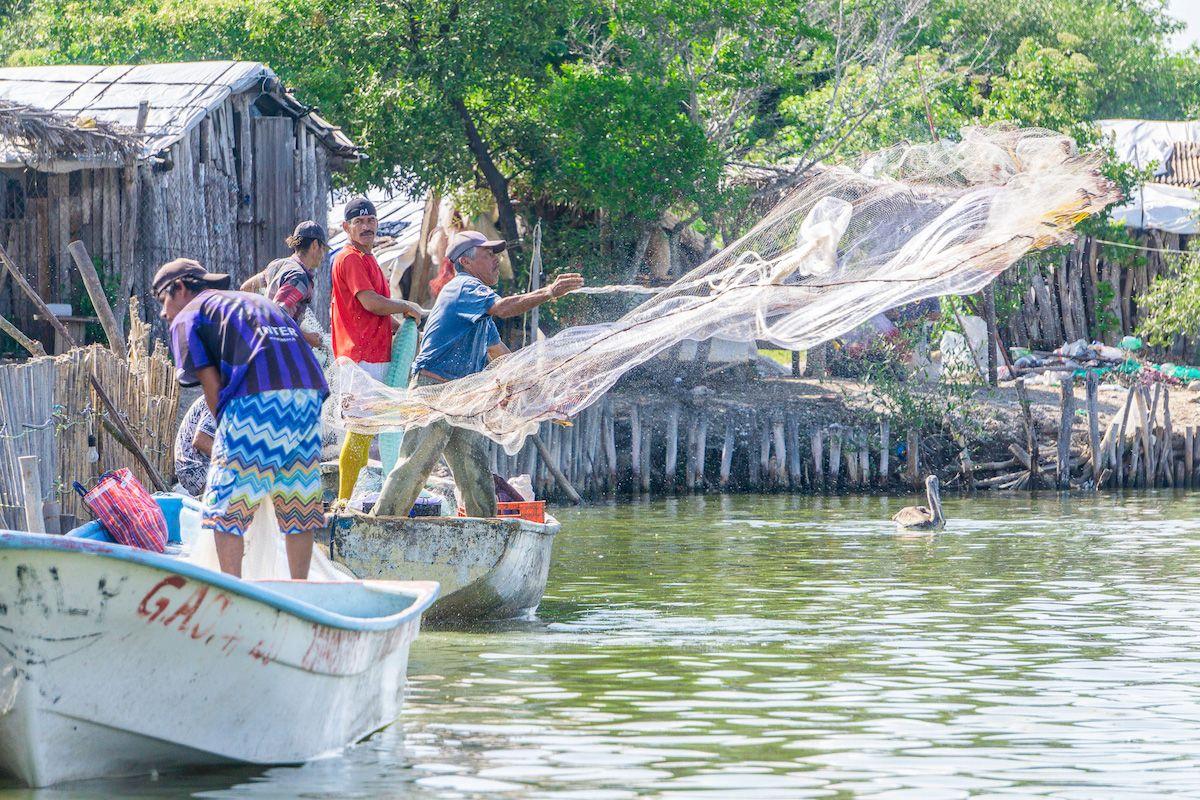The main challenge facing the fishing industry in Mexico is the control of illegal fishing, according to the National Opinion Survey on Fishing Priorities in Mexico conducted by the think tank Causa Natura Center.
29% of the 1,145 people surveyed identified the control of this scourge as the main challenge in the current six-year period; 23.26% to fisheries and aquaculture management; and 22.74%, the social welfare of fishing communities.
“The results obtained provide a detailed overview of concerns and opinions about the areas that require attention and possible intervention strategies in the following years,” said the think tank.
Within the perception of illegal fishing, 29.46% at the national level pointed to the lack of inspection and surveillance as the main reason for this happening; 19.76%, to corruption; 13.2%, to the lack of support; 12.41%, to the lack of sanctions against offenders; 9.35%, to poverty; 7.17%, to crime; and 7.08% to ignorance about the laws.
Several representatives of the business sector and artisanal fishing have warned of the lack of control represented by poaching and of the federal government's helplessness in the matter. Representatives of the Secretariat of the Navy have acknowledged in public forums that about 40% of fishing is of illegal origin.
Fishery management
When respondents were questioned with the question “What do you consider most important to organize fishing in Mexico?” , 52.8% said that fishermen require training on fishing regulations to be achieved, 26.6% of updating permits and concessions; 20.54% of mandatory and updated registration of vessels.
However, training fishermen is a task that faces several barriers. 45.5% of the respondents pointed out that the main one is the insufficiency of economic incentives or programs; 33.4% the lack of access to training; 20.9% the low availability of infrastructure; 11.4% increasing the coverage of beneficiaries.
In Mexico, at least 216,000 people work as fishermen, according to official data. The figure is equivalent to the number of attendees needed to fill the Azteca Stadium twice and, on a third occasion, half.
In the discussion forums, the question of what tools would improve the state of fisheries is a constant. In the survey, 33.5% of respondents reported developing species-specific management plans, 28.9% improving community participation in management, 28.1% monitoring the effective manner of marine areas and 9.6% increasing fishing shelters.
Faced with the various instruments that could be implemented, the six-year term of President Andrés Manuel López Obrador unified his support into a single program: Bienesca. This is an annual transfer of 7,500 pesos made to registered fishermen.

Program beneficiaries receive one payment per year. Photo: Government.
Asked about how to improve this flagship program of the previous and current administration, 52.1% of the respondents reported that through the inclusion of a training and education component on sustainable practices, technologies and good practices; 22.9% thought that through the transparency of the beneficiaries; 13.4% of the adaptation to the needs of the communities; and 11.4% of the increase in the number of beneficiaries.
In terms of gender, 30% of respondents consider that the most important action is training aimed at women and vulnerable groups. Access to training has been key in many cases for women to break the glass ceiling and perform functions previously assigned only to men by fishing cooperatives.
And finally, the survey did not forget to explore the global challenge for fisheries posed by the mitigation of climate change. 48.3% of respondents said that priority should be given to promoting sustainable fishing practices; 24.4%, implementing programs to prepare for climate events; 13.9%, promoting research on fisheries; 13.3%, science-based management policies.
“As such, (the survey) supports efforts to involve greater social participation in identifying problems and possible solutions for achieving fairer and more sustainable fishing and aquaculture,” the survey reads.



Comentarios (0)